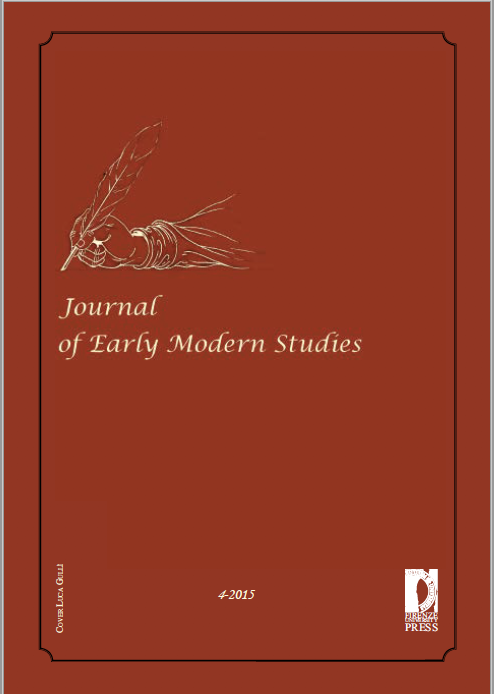<em>All’s</em> [Not] <em>Well</em>: Female Service and ‘Vendible’ Virginity in Shakespeare’s Problem Play
Published 2015-03-02
Keywords
- All’s Well That Ends Well,
- Feminist Criticism,
- Gender,
- Service
How to Cite
Abstract
The article examines the economics of female service in William Shakespeare’s All’s Well That Ends Well, paying particular attention to the role Helena plays as mistress to the Widow Capilet and Diana. Such a focus reveals that what lies at the heart of All’s Well is not only, as previous scholarship has suggested, a battle between the sexes but also an intense focus on class and money. By examining both the ties between women and the ties between men that Helena forges and strengthens, I demonstrate that issues of economics and self-interest govern not only male-female relationships but also those between women. In particular, such attention highlights the role that service – conceived of as both economic and sexual – plays in driving the action and the ‘problem’ of All’s Well.


